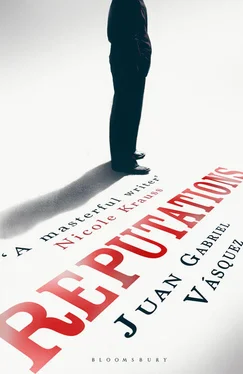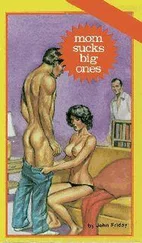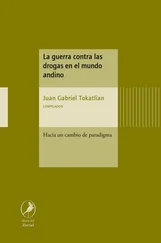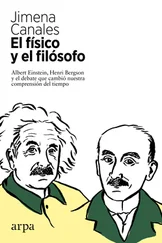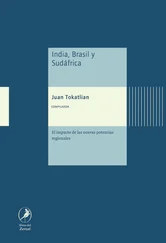He was not mistaken. That was the first day of the most intense period of his life, a decade in which he went from anonymity to having a reputation and then notoriety, all at the pace of one cartoon a day. His work was the metronome that regulated his life: just as others measured time by World Cups or film premières, Mallarino associated every important event in his life with the cartoon he was working on at the time (the eyeless cheekbones of the guerrilla fighter Tirofijo, kidnapper of the Dutch Consul, would always evoke his father’s first bout of cancer; the aged and infirm Francisco Franco’s goose neck and non-existent chin, the birth of his daughter Beatriz). His routine was unassailable. He got up a little before first light, and while he made the coffee he heard the whisper of two newspapers sliding halfway under the door, the doorman’s judicious retreating footsteps, the machinery of the lift — its regretful electronic grumble — coming back to life. He read the papers standing up at the kitchen counter, with the pages spread open over the surface, so he could mark the interesting subjects with a rough charcoal circle. When he finished, with the cold light of the Andean morning timidly filling the living room, he took the radio into the bathroom and listened to the news while giving his body over to the consecutive pleasures of shitting and showering, a ritual that cleansed his intestines, yes, but especially his head: cleansed it of the muck accumulated the previous day, all the critiques trying to be intelligent that were nothing but resentful, all the opinions that should only have seemed idiotic but actually struck him as criminal, all the collisions with that strange country of brotherly hatred where mediocrity was rewarded and excellence assassinated. In the shower, with the hot water flowing over his skin and producing delicate shivers of pores closing and opening up again, sometimes he couldn’t even make out the words from the radio; but some mechanism of his imagination allowed him to guess or intuit them, and when he turned off the water and pushed open the sliding door — two or three extra movements, since the aluminium edge invariably stuck in its frame — it was as if he hadn’t missed anything. Seconds later, emerging from the steamy bathroom, the day’s image fully conceived in his head, Mallarino had only to draw it.
It was, and would go on being for a long time, the happiest moment of the day: a half-hour, or a whole one, or two, when nothing existed outside the friendly rectangle of card and the world that was being born within it, invented or cast by the lines and marks, by the to and fro of Indian ink. During those minutes Mallarino even forgot the indignation or irritation or mere anti-establishment impatience that had given rise to the drawing in the first place, and all his attention, just as happened in the middle of sex, concentrated on an attractive form — a pair of ears, an exaggerated set of teeth, a lock of hair, a deliberately ridiculous bow tie — outside of which nothing else existed. It was total abandonment, only broken when the drawing turned out to be difficult or stubborn: on those rare occasions Mallarino locked himself in the guest bathroom with a copy of Playboy in one hand and some quick relief with the other left him ready to finish his battle with the drawing, always victoriously. In the end, he stood up, took a step back and looked at the paper like a general overlooking a battle; then he signed it and only then did the drawing begin to form part of the world of real things. By some useful spell, his cartoons were free of consequences while he was doing them, as if no one was ever going to see them, as if they existed for him alone, and only when he signed them did Mallarino realize what he’d just done or said. Then he put the card in an envelope, without staring intently at it — ‘like Perseus putting the Medusa’s head in the silver bag’, Mallarino would tell a journalist years later — and the envelope in a scruffy leather briefcase that Magdalena had bought him at a flea market; he took a bus to the newspaper offices, a sort of bunker where all the inhabitants, from the cleaning women to the photographers, seemed to be the colour of concrete; he handed in the envelope and went back to his life without really knowing what to do with his hands, as if dispossessed, wondering why he was still doing what he did, what real effect his cartoon would have on the out-of-focus and remote world that began at the edge of his work table, that slim wooden precipice. Was it disenchantment he was feeling, a sense of emptiness, or had he simply lost his bearings? Was he falling into the old trap of having more ire than ink? The world around him was changing: Pedro León Valencia, legendary publisher, had stepped aside in favour of his eldest son, and Mallarino recognized that part of the pleasure of working for El Independiente had been working with a legend, being the discovery or invention of a legend. As the novelty of the early years started to wear off, the egocentric urge to open the newspaper every morning and see his name in black-and-white faded, and Mallarino was beginning to wonder if it had been worthwhile giving up his oils and canvases for this: for the adrenalin rush he no longer felt, for the imaginary reactions of imaginary readers he never got to meet, for this vague and perhaps false sensation of public importance that only caused him private trouble: relatives who greeted him less warmly, friends who no longer invited them out to dinner. For what?
That’s when he received, in a single prodigious day, the answer to all his questions. He’d acquired the habit of walking around downtown in the afternoons, buying his daughter absurd stickers for an absurd album Magdalena insisted she fill up, or getting his shoes shined and talking politics with the bootblacks, or simply watching life with a sort of hunger that demanded he stay out on the streets instead of returning to his morning seclusion, take off his jacket and feel his arms brush up against other arms and pick up the smell of living bodies, of the food they eat and the piss they leave in corners. That afternoon was a Tuesday, which was the day of the week Mallarino would go to the Avianca building to collect his mail from his postbox (the metallic, grey and deep little box that brought him boundless pleasure, like a magician’s hat for a child) and later sit in some nearby café to read his magazines, answer his letters. He arrived at Seventh Avenue by the National Library and from there, along the eastern pavement, began to walk south, sometimes noticing the noisy, disorderly, relentless city, sometimes so distracted that the building came into view almost unexpectedly, its long straight lines penetrating the sky and struck, on a sunny afternoon, by a dense light that seemed not of this world. As he went in, his hand would already be feeling for his key ring in his pocket and separating out the postbox key, so he wouldn’t have to search for it in front of the wall of postal niches. And that’s how it had gone that time: Mallarino made his way through the corridors (through its whitish light that drew circles under everyone’s eyes) and turned to the little grey door; he stretched out his arm and his precise hand, that hand that could draw exact ninety-degree angles without any instruments, placed the tip of the key into the lock the way a medieval knight would have put the tip of his lance against his rival’s chest. But the key did not go in.
He thought at first that he’d gone to the wrong box. He leaned down towards the little door and looked at the number on the metal tag with all its digits, the same as ever, the ones Mallarino knew by heart. He hadn’t got it wrong. The revelation arrived late, like a careless guest: there was a shadow or a texture, something made him look more closely at the metallic surface, and only when he was inches away from the lock did he realize it had been blocked up with chewing gum. It was a hardened paste (it must have been there for several days) that filled the slot without overflowing the edges: a conscientious piece of work. Mallarino touched the paste with the tip of the key, probed, pushed, scratched a little, tried a carving movement with his wrist, but got nowhere: the dried gum paste remained firm. ‘Hey, what a nasty trick to play on someone,’ said a voice, and Mallarino turned his head to find a gold tooth glinting in the middle of an unshaven face. ‘No way to fix that, huh? People have no respect these days.’ And Mallarino soon found himself climbing a mottled stairway, walking till he reached a counter, handing over his ID and watching as a petite woman went through books, opened drawers and closed them again, produced a photocopy of a form from somewhere and asked if Mallarino would be paying in cash or by cheque, turned a deaf ear when Mallarino protested and said he hadn’t lost the key, that someone had put chewing gum in the lock, and the woman told him it was all the same to her and how was he paying: cash or cheque? Then there were stamps in purple ink, carbon paper and pastel-colour receipts, time wasted in a hard and hostile plastic chair and, finally, a shout ringing against the cement walls: ‘Mallarino? Javier Mallarino?’
Читать дальше
